After eight decades, it’s safe to assume that nobody needs a refresher on the Superman origin story (or the name of his mother). So you can imagine the challenge that fell to the filmmakers of Superman: Man of Tomorrow, the latest DC animated film, in finding a new angle to recount the early adventures of a young Clark Kent.
Veteran animator Butch Lukic is no stranger when it comes to Superman, having worked as a storyboard artist and director on various DC animated projects in the last three decades including the seminal Superman: The Animated Series. Recently, he’s been working as a producer for DC’s animated shows and movies, and as producer of Superman: Man of Tomorrow, Lukic gets to provide his take in this back-to-basics approach for the Man of Steel.
Screenwriter Tim Sheridan has certainly come a long way from a mere toy collector and comics fanboy. In the last few years, Sheridan has worked on some of the biggest DC Comics animated projects in his career, including Justice League Action, DC Super Hero Girls, and Reign of the Supermen. A quick glimpse at his continually growing collection of tchotchkes and it’s not difficult to ascertain that Sheridan is a diehard Superman fan, making Man of Tomorrow a dream project for him.
I recently had the chance to chat with Lukic and Sheridan in separate conversations about Superman: Man of Tomorrow. Our chats revealed some unexpected insights about the film, such as the decision behind the unique design, the film’s themes, and much more.
Taimur Dar: So tell me about the genesis of Superman: Man of Tomorrow. Were you approached specifically for a Superman animated project or was doing a Superman story proposed by you?
Butch Lukic: I think it was a collaboration of all in DC. Me, Jim Krieg, and Tim [Sheridan] thought, “Let’s try to do a Superman story but not exactly starting from the beginning of Superman.” He’s been in Metropolis for about a year and he’s trying to make his way into the world of journalism. And obviously he wants to help people, but how does he approach it without revealing himself?
Part of that influence was from some of the American Alien imagery in the books and Birthright. He flies around wearing the goggles and leather jacket. I felt that if he’s going to be out there and he doesn’t want to be revealed as who he is, even though nobody knows him anyway, this the first approach he would take.
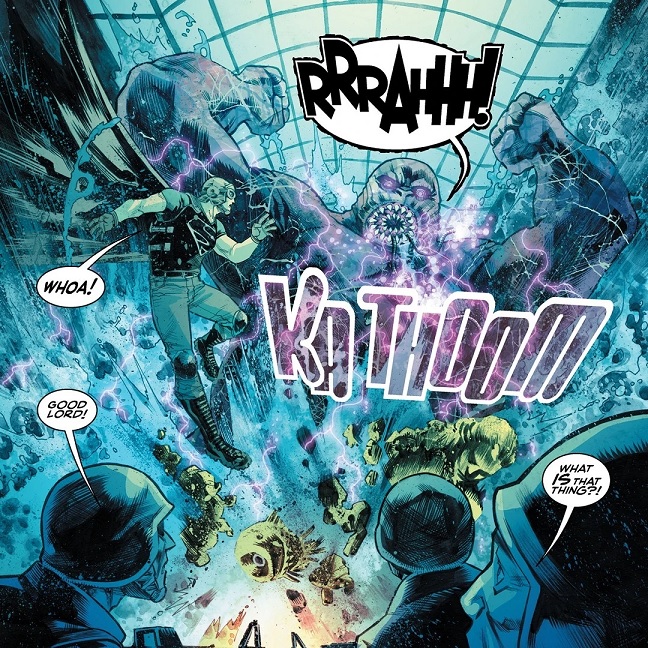
Dar: Fans were struck by the distinct look in Superman: Man of Tomorrow compared to previous DC animated films and animation in general, most notably the thicker and bolder lines. So I’m really curious about the design team involved and the challenges this presented for the overseas studio?
Lukic: There’s a guy named Otto Schmidt. He’s a comic book artist and he does online art and illustrations too. Every time I saw his work I always felt we could make it animated. Plus he’s a very good designer and I felt his style and design for costumes [meant] he could hit it dead on which he did. He didn’t really understand animation when we first started but as he’s been sending us designs he’s learning from when I send him back notes. One of my designers, Jon Suzuki, tells him when things need to be altered or changed to fit animation. But ultimately Jon Suzuki, my main designer, and Dusty Abell tend to work the rest of it to make it usable for animation.
The other part design and style wise for animation, we were looking at the French animation studio that did the Lastman cartoon. It’s that style where we also felt that if they could do it then we can probably get away with it too. That was part of what we were thinking and also trying to go back to something more traditional before the anime deadline quality took over. I was asked to try something different so I went the opposite way of what the other things have been doing. I didn’t see what else you could do.
Dar: The immigration experience has always been part of the Superman mythos. If I’m not mistaken, you’re an immigrant yourself?
Lukic: Yes, I’m originally from England.
Dar: It’s not an exaggeration that immigration and xenophobia have been hot button issues in the last few years. How much influence did current events have on this Superman project?
Lukic: Yeah, I’m sure that’s where it started from as far as the writer’s point of view. It’s just like looking at things like Twilight Zone. There’s a lot of allegory in those stories. The political aspect was obviously a part of it but American Alien came a couple of years before that and other things. It’s always been a thing in a lot of Superman tellings and retellings that he’s not human. He comes from another planet. He is an alien. How do you approach that and how does he accept that? And how is he accepted by the world?
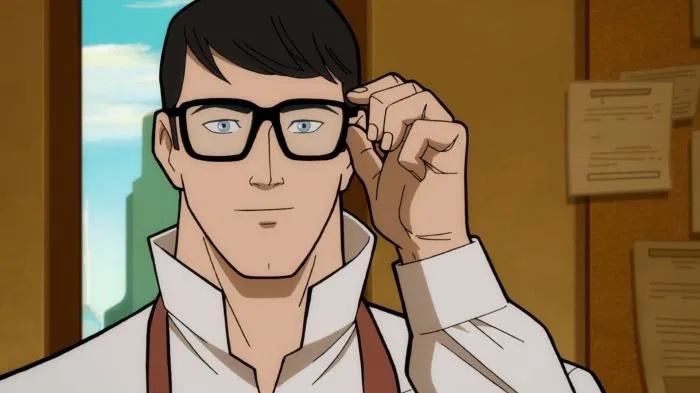
Lukic: Yeah, when you’re doing 52 episodes of animation in a series, you’re basically juggling about 3-4 episodes at the same time. We’ve probably got an extra month or two as far as design and storyboards to do these movies. It’s not much difference but it gives me enough of a stretch which I thought would allow me more freedom. But then I found out it ultimately does time out the same because you are eventually juggling three movies at the same time. One in finished [production] and into music and sound effects and another one in the middle of storyboarding and animatics and design. And another one that’s going into the written stage.
Realistically, I thought it would be easier and the grind would be less. In order to keep people employed and my crew together, if I didn’t do these things back-to-back the crew would end up having to be laid off for 3-4 months and would do other projects. Then there’s the fear of other projects. In a way we have to do these things on top of each other in order to retain the crew of people you need to design these things.
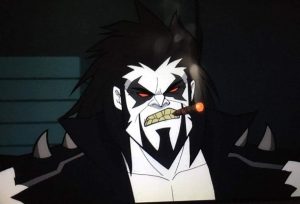
Lukic: Now that I’m older, it’s come a little bit late for me to be excited about it. But I’m glad I was able to put him in context of who he really is without having any kinds of censorship or drawbacks. The only thing I did was self-censor a little bit because I didn’t want to do too much of the swearing when it’s unnatural. Everything, the swearing and the sexism, appropriate or inappropriate is about as far as I take it because we are doing PG-13. If it was an R-rated Lobo I’d go a completely different approach.
The smoking issue was always a big one. You can’t do it. But obviously times have changed over the years. Most people don’t smoke but we still put it in there because it’s part of the character. Same with Constantine in City of Demons. He can’t be walking around without his cigarettes in that movie because that’s the character.
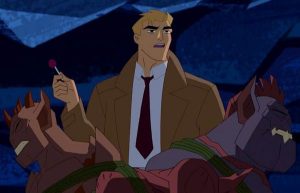
Lukic: Yeah, we made it kid friendly.
Dar: In addition to JLA, you’ve worked on other kid friendly DC animation properties like the Batman Unlimited franchise. Having worked on projects for both older and younger audiences is there one you prefer?
Lukic: At first, going into the kid friendly stuff was really because that was all we could do at the time. Even the years I worked on Ben 10 it was really only a matter because it was the only thing that was out there and popular. That was the concern for a few years because anything we tried to approach more action-oriented, it had to be put on Cartoon Network and they obviously didn’t really like that type of heavy action stuff. They would put it in a spot where it would basically kill it so people wouldn’t see it. That’s kind of what happened with Young Justice and Beware the Batman and Green Lantern: TAS.
If we went for a more comedy route, they’d be more interested. For Justice League Action, I guess not because they weren’t that interested. More likely they just don’t like superheroes. I don’t know. That’s kind of the reason why the whole comedy end happened. Otherwise if hardcore or more PG action was popular at the time, we would’ve been doing more of that. The only thing that was selling decently enough was the DTVs at that time. You couldn’t get a series on the air that was a little bit more adult. Now we can because everything has been blown open with streaming.
What I favor more is the adult material. But I have no problem doing the kid stuff too. It was fun.
Dar: Can we expert this unique style again either by you or others in future DC animation projects?
Lukic: Yeah, I’ve been testing it out on one or two other films in a different variation. I’m going to keep going this way to see how it works. Other producers producing DC material are doing it a different way. I just like the variety. What we originally intended with these DTVs when Bruce Timm was executive producer was that there was a different style every other movie. But then things changed. The problem with trying different styles with every movie is you can’t use and reuse certain aspects that you’ve designed for one movie and try to lower the costs for the next movie because it doesn’t match up. Ultimately when they went into the New 52 they had to be a little concerned about that because the budgets weren’t getting any bigger so that’s why they built that Phil Bourassa and James Tucker look.
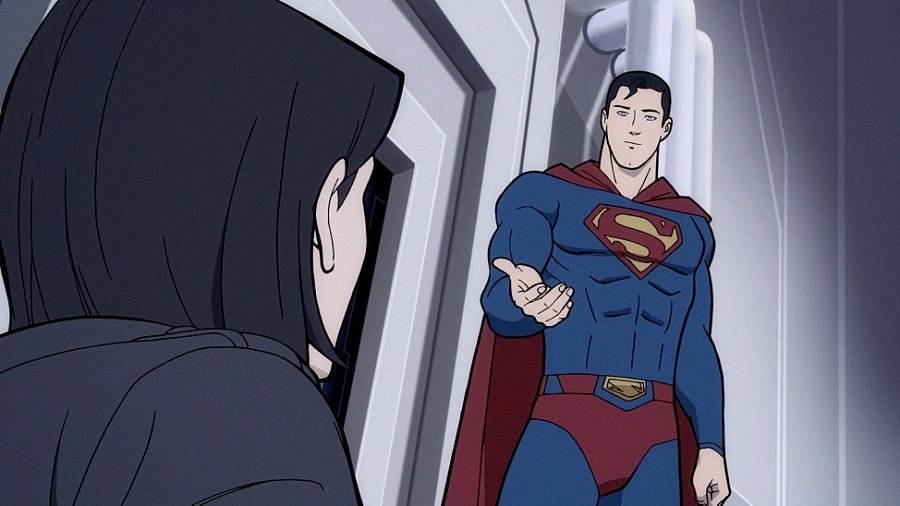
Lukic: I think going to the stripped down version, starting over, and giving him his roots on how he came to be. In animation it’s easier to handle. For a live-action approach it depends on the producers and directors. Even Warner Bros. themselves if they’re concerned about going for a lighter approach is it going to lush with the general public. Obviously there are hundreds of millions more dollars at play there so they can’t really take that risk. But it looks like when they went for a certain path it didn’t really work out for them, so who’s to say.
I’m in animation so when you put the red underwear back on Superman it works. It works fine in drawings.
Dar: I remember the huge promotion from DC Comics when they announced the red underwear was returning with Brian Michael Bendis’ Superman run.
Lukic: We weren’t given any kind of dictate that I had to keep him without the red underwear. I just felt that we needed to go back to the classic route especially for animation.
Dar: I know this is a standalone film but has there been discussions about a sequel revisiting the continuity established by Superman: Man of Tomorrow?
Lukic: Right now it’s been discussed as a standalone and to see how it does. If it does ok we can move forward and build upon the character. If we do a sequel it might be two or three or even five years later depending on when we can do it.
Taimur Dar: For a lot of writers there’s an intimation factor when it comes to Superman. He can either come off as too “Mister Rogers” or go in the opposite direction as too angsty. Unless I’m mistaken you actually seem to be a fan of the character, so was the prospect of writing a Superman movie daunting or did you come at with great enthusiasm?
Tim Sheridan: First of all, I’ve never heard anybody say “Mister Rogers” in relation to Superman. That’s amazing, I love it! [Laughs]. I totally get what you mean when you say that. We talk about him being the “big blue boy scout.” In so many ways that’s not who I am. But I think the reason Superman is so iconic and so important as a character and why he’s going to last longer than all the rest of us is because we all do see something of ourselves in him. If nothing else, we see a hope of what we can become. I don’t think I thought about those things when I was in my ‘20s, Clark’s age in this movie. It took a little time and perspective for me to see things and look where we can find hope for all of us.
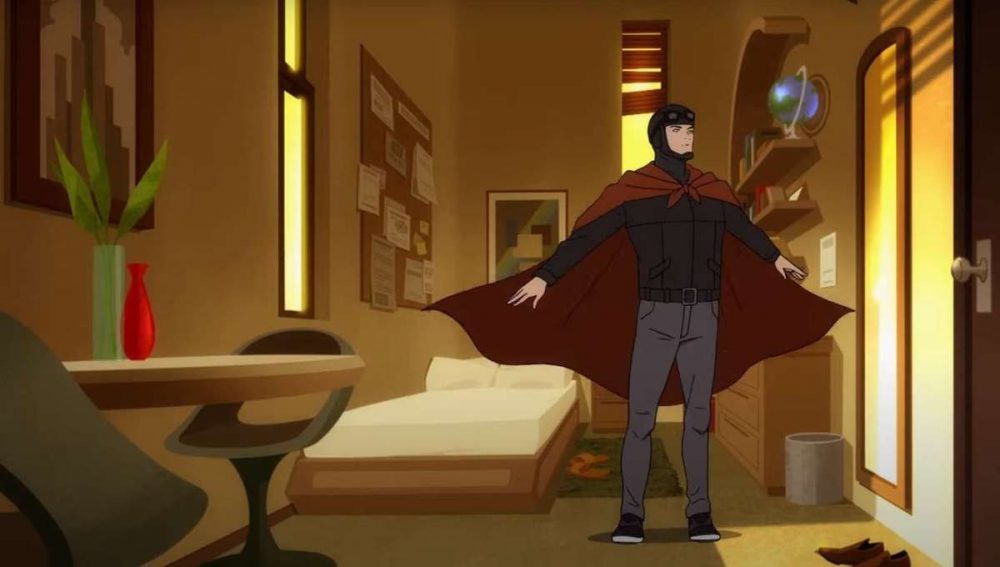
Dar: I didn’t realize until I saw the Superman: Man of Tomorrow panel that IGN streamed that you came from a theater school background. So I’m just really curious about the trajectory from that to animation and superheroes as well as what kind of influence your theater background had on this and perhaps your other animation projects?
Sheridan: What’s amazing is the first and I think the most important book I ever read about telling stories was Aristotle’s Poetics, which sounds really hoity toity. But is the foundation I think for all of storytelling. One of the things is key that you learn when you read that book is the concept of spectacle and how important spectacle is in storytelling. There’s nothing more spectacular than superhero mythology. These people with the powers of gods who look like and are us. That is why superheroes and Superman are as popular as they are. I read that book in theater school and I think I always had an eye towards the big spectacular stuff.
Now keep in mind, I always was a huge comic book fan as a kid and I’m a big action figure collector. I was already all in on superhero genre. But what I wasn’t all in when studying theater was being a writer. I didn’t know I was going to be a writer back then. So it kind of all ended up coming together and making a lot of sense in the end.
In that panel you mentioned I joked, but it’s true, that I’m crazy about small intimate scenes that take place in one room with two people coming to terms with stuff like you see in a play on Broadway. That doesn’t always lend itself to animation. I can’t believe how lucky I am to get to work with somebody like Butch Lukic and Chris Palmer. People who really wanted to tell those kinds of stories in animation. To really get to the bare bones of character and relationships. A movie is a movie whether it’s animated or live-action. A movie has to work a certain way. It can’t just be all big cosmic fights. You have to understand the stakes and the stakes aren’t necessarily world colliding. The stakes are so much more what we deal with in our daily life. What’s going to happen to me if I tell the world who I really am. The world who I think fears me and hates what I represent. Those are the stakes in Man of Tomorrow.
Dar: Longtime Superman adversary Parasite is in the film. Compared to those of Batman, Superman’s rogues gallery isn’t that known by the general public. You use the Rudy Jones version but you deviate from the comics by giving him a daughter and pregnant wife. Funny enough, my friend Cristina Milizia voices both characters and was actually pregnant herself when she recorded.
Sheridan: That’s great! She’s excellent too.
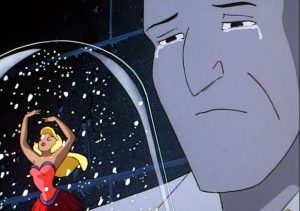
Sheridan: How dare you compare anything I would ever do to that Mister Freeze/Paul Dini stuff which is just the greatest! [Laughter] Let me tell you this, what we knew we wanted to do from the start was play against what you expected from these characters. I don’t think people expected to see Clark Kent at an emotional crossroads of trying to figure out if he should be truthful. Because we think of Clark of someone who’s always about truth and justice. For him his struggle with the truth is something I don’t you would have expected to see in a Superman story.
The same thing with Parasite and Lex Luthor. We wanted to play against what you might expect to see from those characters. And ultimately give it a little twist. I don’t want to spoil anything but the climatic moment in the film where we see that thing twist around itself, it’s the moment where everything sort of clicks and Kal-El really become Superman. It’s all about him explaining to everyone how maybe we’re looking at things through a different lens and maybe we should switch those lenses.
Dar: Definitely not exaggerating in my comparison to Dini’s “Heart of Ice” episode. Much like Mister Freeze before that story, I never expected I would empathize with a character like Parasite until Man of Tomorrow.
Sheridan: It’s essential you meet him as Rudy in this version of Parasite. Rudy’s story in this movie is a total tragedy. Brett Dalton just brings so much to the portrayal of Rudy and makes you really care for him right from the beginning. He’s so understated and he’s so willing to play the quiet moments. I wish I could take credit for the way Rudy comes off in this story but Brett is just absolutely essential. He really made it work.
Dar: Speaking of villains, you also have Lex Luthor in this film. We’ve definitely seen Luthor parodied as the current president such as in Young Justice. More than that, Luthor’s own xenophobia parallels what we’ve seen in the country the last few years when it comes to immigration. Did current events have any influence during the writing process?
Sheridan: Let me give you a surprise about that. That’s not where we came at it. We didn’t come at it with, “Let’s tell an allegory about immigration,” or anything like that. That wasn’t our first instinct. There’s no way around doing a Superman story with Lobo and Martian Manhunter without understanding that there’s an immigration element to the story. It wasn’t something that drove the start of the process. It was so much more stripped away than that. It was, “What does it mean to be a stranger in a new land?”
Obviously that is very much an immigration story but we wanted to talk about what it means to be an outsider and to be looking at the rest of the world. I think you can understand that even if you’re not an immigrant. I think we all understand what it feels to be on the outside looking in at different times in our life. We all feel that way. It was much more basic and something universal that we thought everybody would be able to identify with. Now certainly, there’s no question that when you open up a newspaper today there are a lot of stories that are terrible in the world and heartbreaking. I didn’t immigrate. Butch Lukic is an immigrant to the U.S.. He understands that more than I ever could dream of understanding. What I do understand is what it means to feel like an outsider and feel like the world is not a safe place because they might see me as an outsider [and] might not accept me. To me, that’s something that’s universal.
Dar: Finally, I know that you’re a writer on the Netflix Masters of the Universe: Revelations series. But can fans expect any more DC animation projects from you in the distant future?
Sheridan: Nice try! [Laughs]. I can’t talk about anything. Literally, the only thing I’m allowed to even talk about is Masters of the Universe because I’ve been announced as working on that. We try to make sure we announce everything in the right amount of time in the right place. Who knows! There may be more announcements in the future. I may be working on some other stuff. I wish I could confirm or deny anything. All I will say is if these guys at DC and Warner Bros. want to have me back in to keep on babbling about superheroes then I’m onboard. I hope I get a chance!
Superman: Man of Tomorrow is available now on Digital and arrives on on 4K Ultra HD Combo Pack and Blu-ray Combo Pack on September 8, 2020.


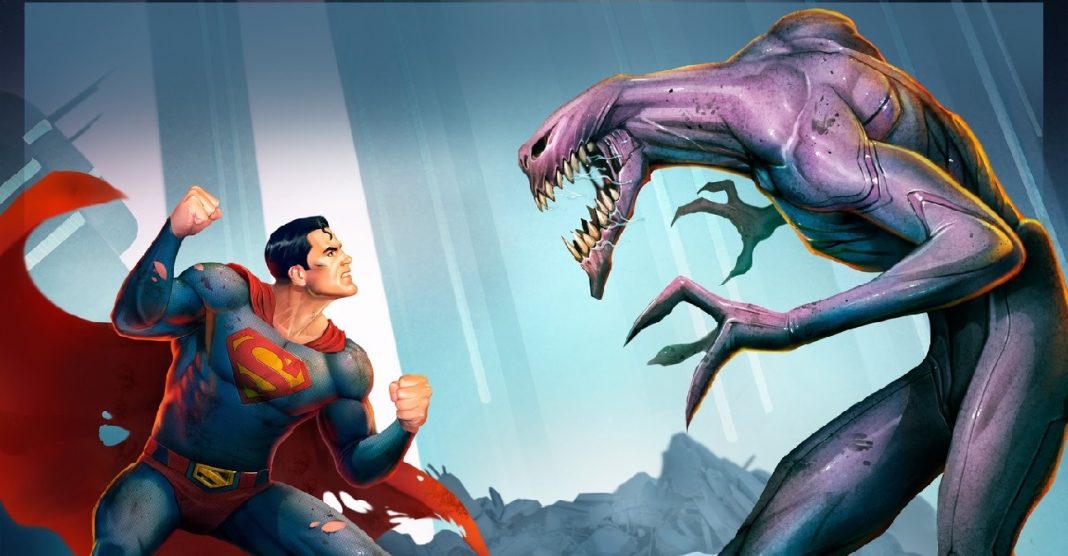
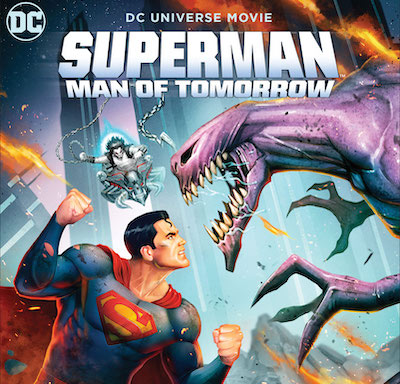
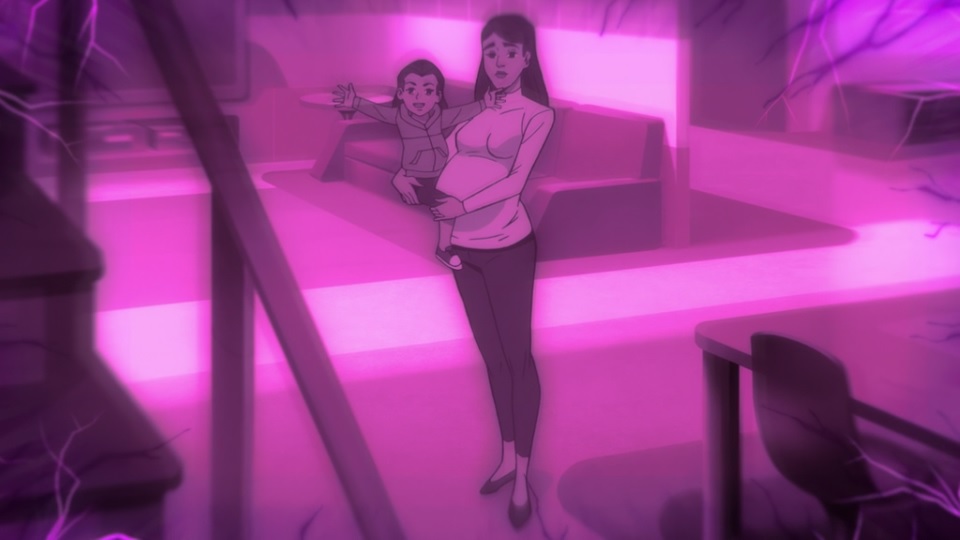
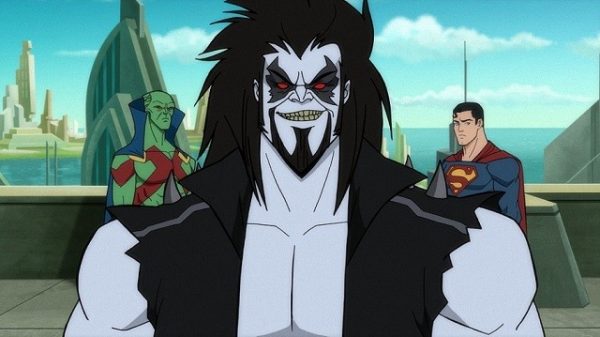
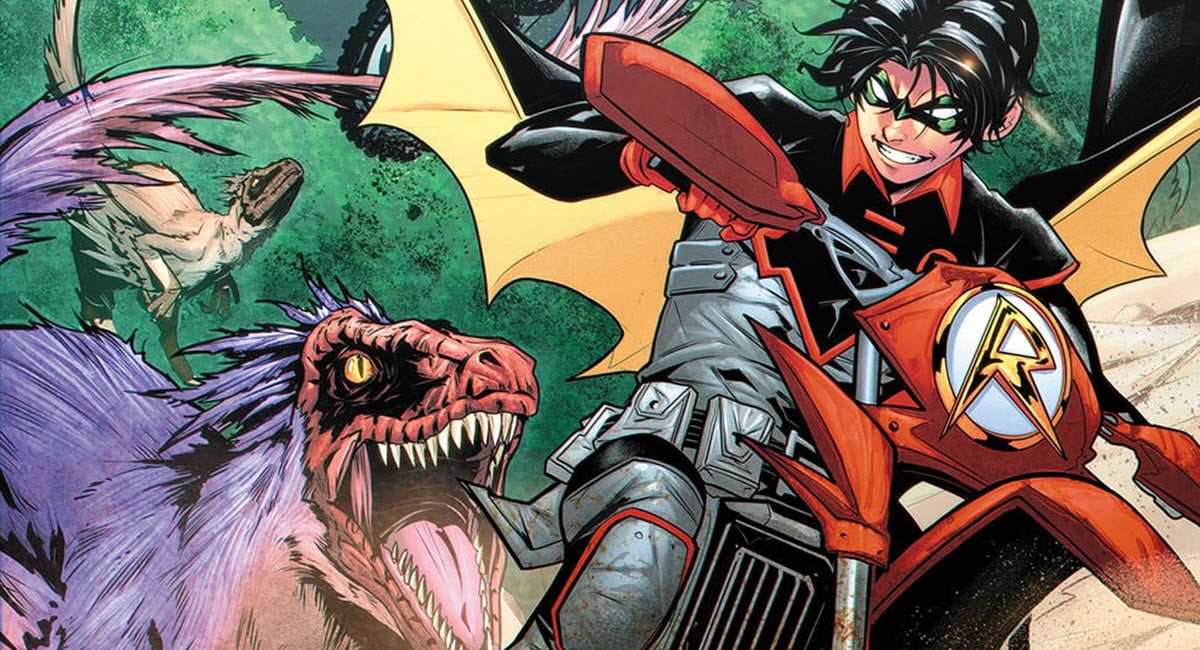
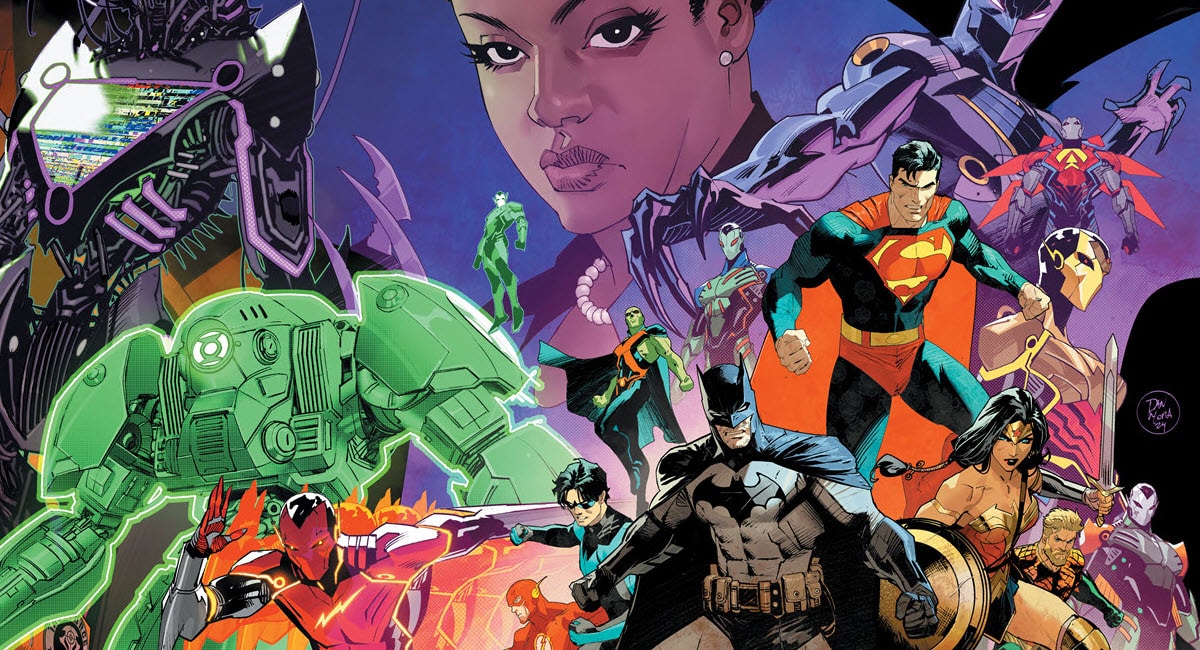
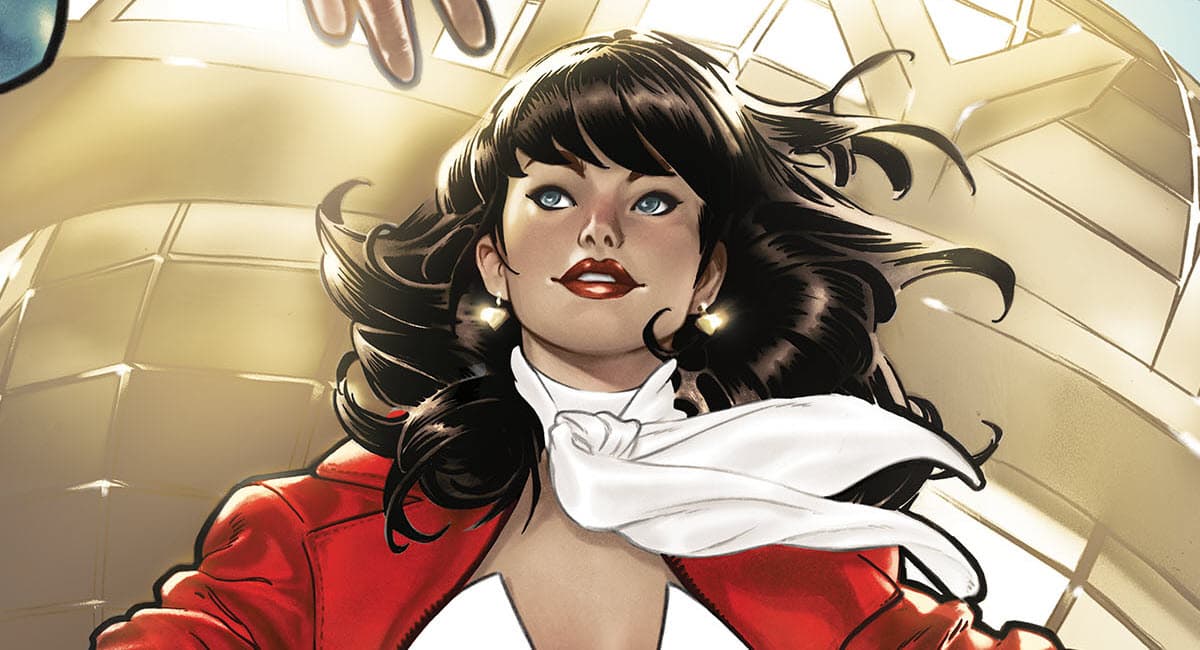


Finally! Someone had the guts to dramatize Superman’s origin!
And it looks like they took at least 14 days to make this thing (including time spent glancing at actual Superman comics to soak up a few of the details).
Who is this cool looking bad guy? Probably someone very important to the Superman mythos! Maybe he’s one of those cool ‘gritty’ characters from the ’90s. If there’s one thing Superman’s origin always needed it was a dash of that ’90s speculator mentality inserted front-and-center!
As a Superman fan, I’m just grateful that someone has brought a sense of respect to one of these moving-talking picture things about him. If only the Wonder Twins could get this kind of thoughtful treatment.
I’ve always found Lobo to be the most annoying character in the DC universe. I was planning to buy this until I saw that he’s in it, so I’ll be giving it a big pass.
James – Come on, you got to have a change of heart: Lobo is being voiced by none other than Sons of Anarchy’s Ryan Hurst. It’s perfect casting!
~
Coat
Comments are closed.